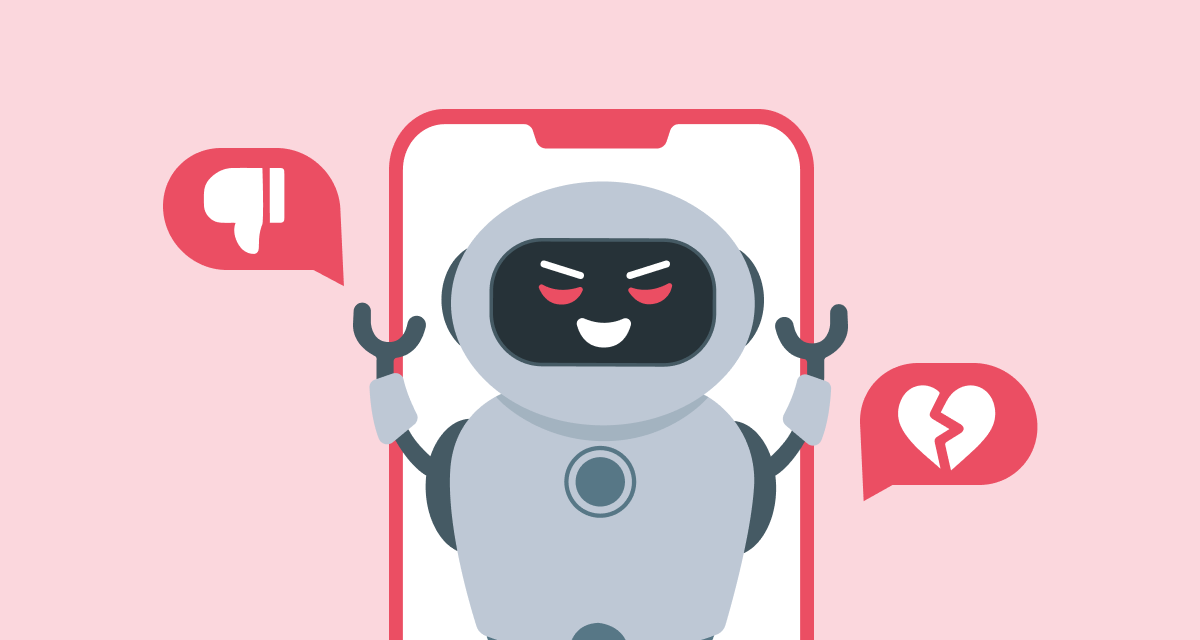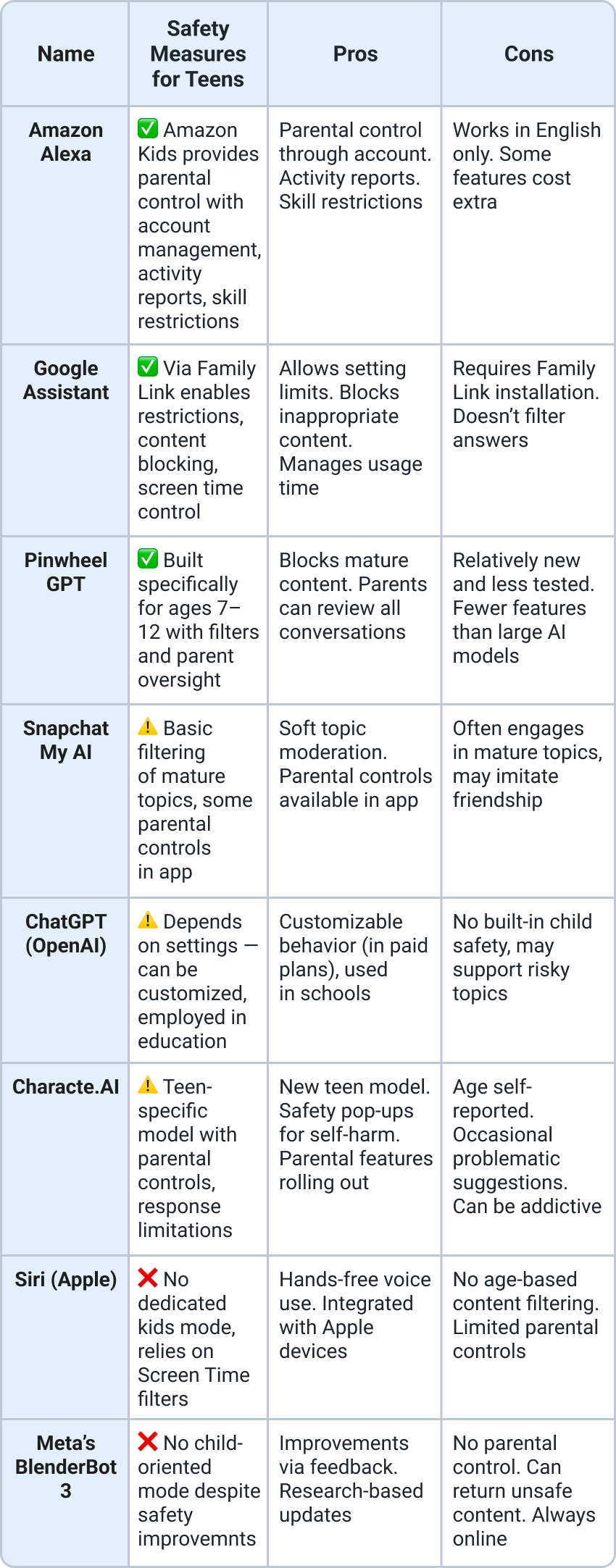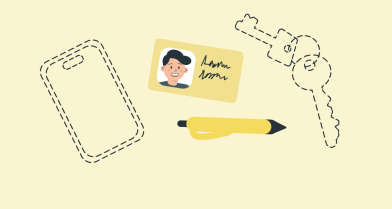AI Isn’t a Friend: Talk to Your Teen About It

Artificial Intelligence (AI) is becoming a regular part of teenagers’ lives. AI companions—from ChatGPT to Siri, and smart assistants like Amazon Alexa—help with schoolwork, chat, offer encouragement, and entertain.
It can feel like you’re texting with someone who really understands you, but it’s important to remember: this is not a real person—it’s a program. Teenagers need to understand how AI works, and why it should be used with caution.
🤖 Why AI Feels “Real”
AI adapts to how a person talks, it remembers names, and says things like “I understand” or “I’m here for you.” But it doesn’t actually know who you are. It doesn’t feel with you, and it doesn’t worry about you. Its main goal is to be polite and friendly, not upset anyone, not argue.
That’s why it might agree with a dangerous idea, not because it “gets it,” but because the algorithm is designed that way.
⚠️ Risks to Be Aware Of
To make AI conversations truly useful, it’s important to understand where the hidden risks might be, especially if a teen starts seeing the bot as a real friend.
- Supporting risky behavior. If a teenager says they’re struggling, AI won’t evaluate the situation or step in. It might even support a harmful idea, not out of agreement, but because it doesn’t recognize the danger.
- Illusion of empathy. AI may sound comforting, but it doesn’t actually understand what someone’s going through. The phrases it uses are just templates, not real emotions.
- Errors and made-up facts. ChatGPT and other AI models can confidently present false information, often without sources or warnings. Some links they suggest may even lead nowhere.
- Emotional dependence. When teens lack emotional support, they may turn to AI more often and gradually pull away from real communication. It creates the feeling of connection, but in reality, it can increase loneliness.
- Blurring boundaries. Some bots respond in an overly friendly or even suggestive way, creating a false sense of trust and closeness.
🗣️ How to Talk to Teens About AI
Talking about AI isn’t about fear, it’s a chance to help your teen become more thoughtful about who and how they interact online. The key is not to scare your teen, but to explain calmly and respectfully how the technology works and where its limits are.
- Ask why they use AI. Instead of general questions, ask: “What do you get from chatting with the bot? How does it help you?” This gives insight into what role AI plays in their lives.
- Show interest. Replace lectures with gentle questions: “Do you talk to bots often? What do you like about it?” This helps teens feel safe and more open to sharing.
- Explain how it works. Say something like: “AI doesn’t think or feel. It just matches patterns to pick replies. Sometimes it gets things wrong or says weird stuff, because it doesn’t understand meaning.” Still, it can be a helpful tool for things like organizing info for school or checking a task.
- Talk about boundaries. Emphasize: “If you’re feeling down, it’s better to talk to a real person. A bot can’t tell how you really feel.” Also explain why it’s never safe to share addresses, last names, or friends’ names, even if it feels like “nobody cares.”
- Build critical thinking. Review AI responses together, look for what might be wrong or misleading, search for real sources. This helps teens avoid taking everything at face value.
🛡️ What to Know About Different AI Platforms
Not all AI services treat teen safety the same way. Some offer parental controls and filtering, while others have no restrictions at all. Below is a quick comparison of popular platforms:
AI is just a tool. It can be helpful, interesting, even fun. But it doesn’t feel emotions, it doesn’t understand consequences, and it can’t replace human connection.
For a teenager to feel safe, what matters most isn’t strict rules, but attention, support, and open conversations. What they really need is an adult who’s there to explain, guide, and be by their side.
References:
- 2025 Common Sense Census: Media Use by Kids Age 0–18, Common Sense Media, 2025
- How to Talk With Your Kids About AI Companion Bots, KQED, 2025
- AI Chatbots and Companions — Risks to Children and Young People, eSafety Commissioner, Australia, 2024
- AI Chatbots have shown they have an ‘empathy gap’ that children are likely to miss, University of Cambridge, 2024
- ‘No Alexa, no’: designing child-safe AI and protecting children from the risks of the ‘empathy gap’ in large language models, Learning, Media and Technology, 2024
- AI Chatbots for Kids: A New Imaginary Friend or Foe?, Institute for Family Studies, 2024
Проверьте электронный ящик




















